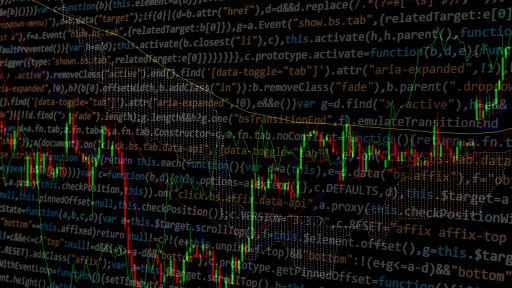- Home
- >
- Cryptocurrencies / Algotrading
- >
- The Great Liquidity Crisis. Trading in the age of algorithms 2

The Great Liquidity Crisis. Trading in the age of algorithms 2

As we described yesterday in the article Trading in the era of algorithms, trading nowadays is mainly performed by algorithms. And the spread of automated trading systems is likely to increase in the future: currently, over 90% of US trading volumes come from algorithms. This means that for ordinary traders the only option is to either adapt to the market or leave it.
The risk that Marko Kolanovic, an analyst from J. P. Morgan, sees in the automation of trading is that in times of volatility, no algorithm will be willing to buy a financial instrument whose price is falling rapidly. As we described in the article yesterday, algorithms most often buy securities at technical support levels. When the market is down 5% in a day, however, and no market support is seen, the algorithms leave the market (with sell-stop orders, thus fueling the downturn) and do not join the market until support levels are found . Given that 90% of the volume of US markets is from algorithms, and 52% are algorithms using scalping strategies (which do not work in periods of serious market corrections), market adjustments nowadays will be extremely rapid. Since algorithms, the main source of liquidity (funds) and volume of markets, automatically leave markets in times of increased volatility, when there is a correction, the 10% of traders and investors are the only support for the market.
The question is who will be ready to buy shares during the next correction? As we described yesterday, for the ordinary trader, the only way to survive in such an environment is by understanding how algorithms are thinking and taking advantage of volatility. At such times, according to J. P. Morgan, the only support for US markets may be the Federal Reserve. This, of course, is the policy of the Bank of Japan. Given the weak growth in the Japanese economy for the past 20 years, such a policy is not effective because it destroys the most important mechanism in the markets: to give money (liquidity) where they are productive and to take them where they are unproductive.
The picture depicted by J. P. Morgan shows what the future could be for the financial markets. The current state of the markets gives us an idea of what we can expect in the future. Seasons of peace, in which markets almost do not respond to the risks to the global economy interrupted by sudden and strong corrections in the markets. This means that the February correction (12.1% SPX correction between January 30 and February 6) is just the beginning of what is going to happen in the future.
Traders should therefore assess the liquidity they have: these are the free funds and capital they can use for trading in situations of increased volatility. These moments are the most risky, but with a disciplined strategy they can be the most profitable.
Source: CNBC
Original post: JP Morgan's top quant warns next crisis to have flash crashes and social unrest not seen in 50 years
Image: pixabay.com
 Varchev Traders
Varchev Traders If you think, we can improve that section,
please comment. Your oppinion is imortant for us.






